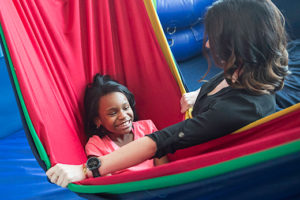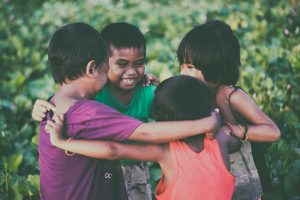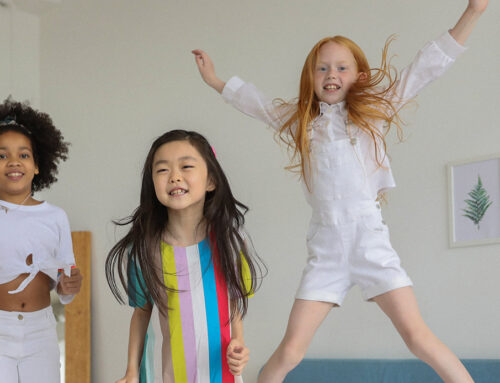Supporting Siblings of Children with Disabilities

Raising a child with specific needs can bring additional strain to the family unit. Here are some strategies and tips to support siblings of children with disabilities:
Communicate
- Maintain an open, honest, and inviting space to listen to your child. Allow them to share feelings of anxiety, fear, blame, guilt, confusion, etc. Acknowledge these feelings and be authentic in this dialogue.
- Check in with your child, especially after a difficult and stressful moment. It is important that the sibling’s feelings are heard and validated. Ask them what they want and need.
Offer Time and Attention
- Arrange a regular date with just you and your typically developing child.
- Put the sibling’s needs first once and a while.
Inform
- Explain to the sibling your child’s disability and engage in an age-appropriate discussion about what this means for the child with the disability, the sibling, and the family unit. Use a variety of sources (i.e. visuals, videos, books, stories).
- Discuss similarities and differences. Acknowledge the unique needs of your child with a disability and the unique needs of your typically developing child.
Minimize Stress
- Stressful moments may happen in the home or community. Make a plan with your child for what to do when these situations occur.
- Provide opportunities for your child to create social relationships outside the home.
- Recognize moments that may be uncomfortable or embarrassing for the sibling. Talk about them.
- Set realistic expectations for the sibling. They may feel the need to overcompensate by taking on more responsibility.
Seek Outside Support
- Find a sibling support group.
- Interact with other families with children with disabilities.
- Seek professional support, if needed.
Take Care of Yourself
- It can be easy to enter a thought process that you are not doing enough to support your other child(ren). Be kind to yourself! Engage in your own self-care.
Your child will be okay! Some studies indicate siblings of children with disabilities grow up to be more resilient and demonstrate higher levels of compassion and empathy (Hastings, 2016; Meadan, Stoner & Angell, 2010; Perenc & Peczkowski, 2018). Many life lessons can be learned early on, and the child with the disability can be your typically developing child’s greatest teacher.

Hastings, R. P. (2016). Do children with intellectual and developmental disabilities have a negative impact on other family members? The Case for rejecting a negative narrative. International Review of Research in Developmental Disabilities, 50, 165-194. Academic Press.
Meadan, H., Stoner, J. B., & Angell, M. E. (2010). Review of literature related to the social, emotional, and behavioral adjustment of siblings of individuals with autism spectrum disorder. Journal of Developmental and Physical Disabilities, 22(1), 83-100.
Perenc, L., & Pęczkowski, R. (2018). Cognitive and affective empathy among adolescent siblings of children with a physical disability. Disability and Health Journal, 11(1), 43-48.

Eyas Landing is a therapy clinic with a mission to provide evidence-based and family-centered therapy services for children, adolescents, and their families. The primary goal is to deliver relationship-based interventions within the most natural environments and to empower families to reach their full potential. To achieve this goal, our highly educated, compassionate staff dedicates time and expertise to create experiences that maximize therapeutic outcomes. The strength, determination, and perseverance of our clients are evident as they succeed in therapy, and ultimately in their daily lives.
Eyas Landing offers a wide range of comprehensive services including Speech Therapy, Occupational Therapy, Physical Therapy, ABA Therapy, Social Work, Family Therapy, and Neuropsych testing. Services are provided throughout the Chicagoland area via Telehealth, In-Home, and in our state of the art clinic.
Want to learn more or you have a specific question? Feel free to connect with us here!



